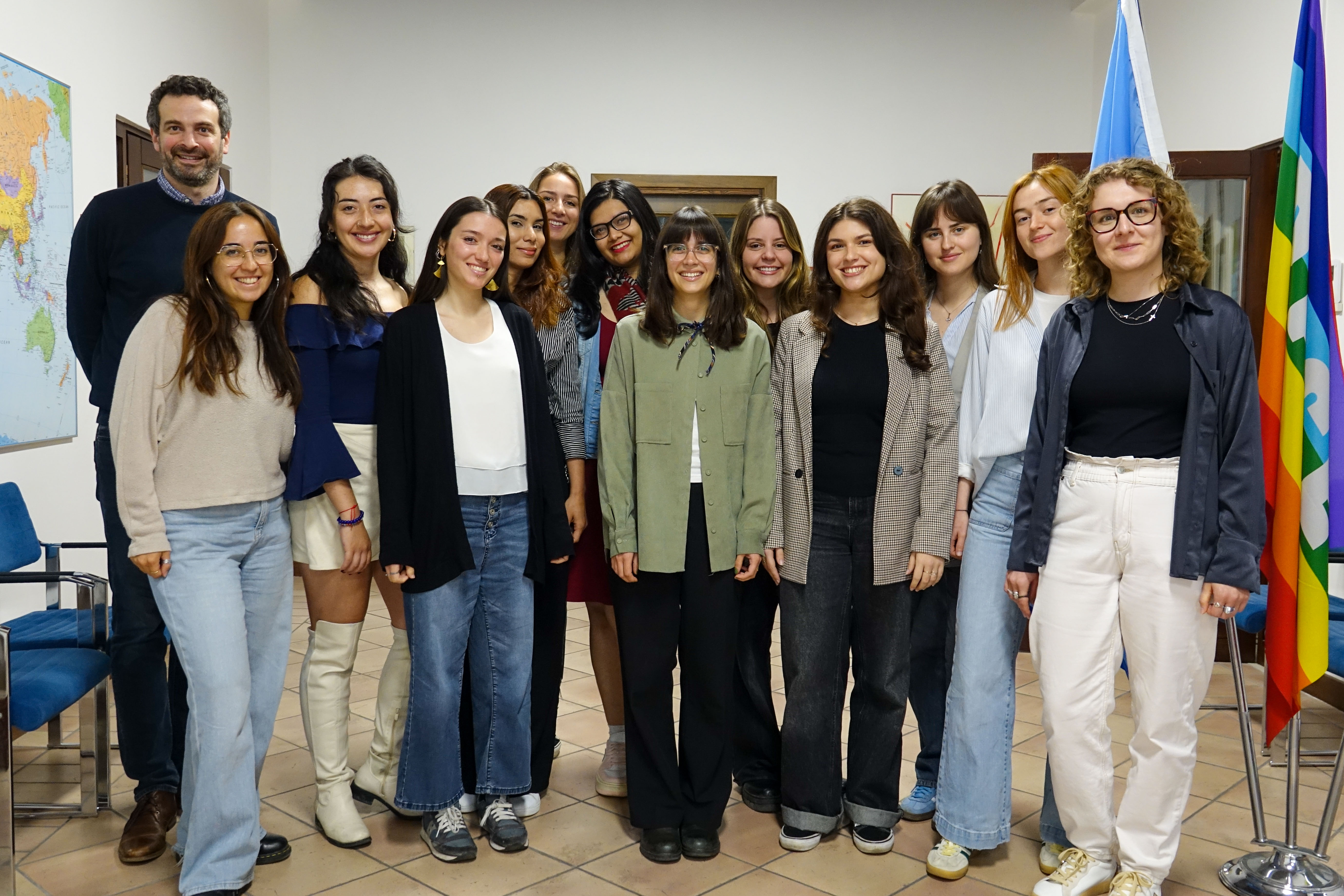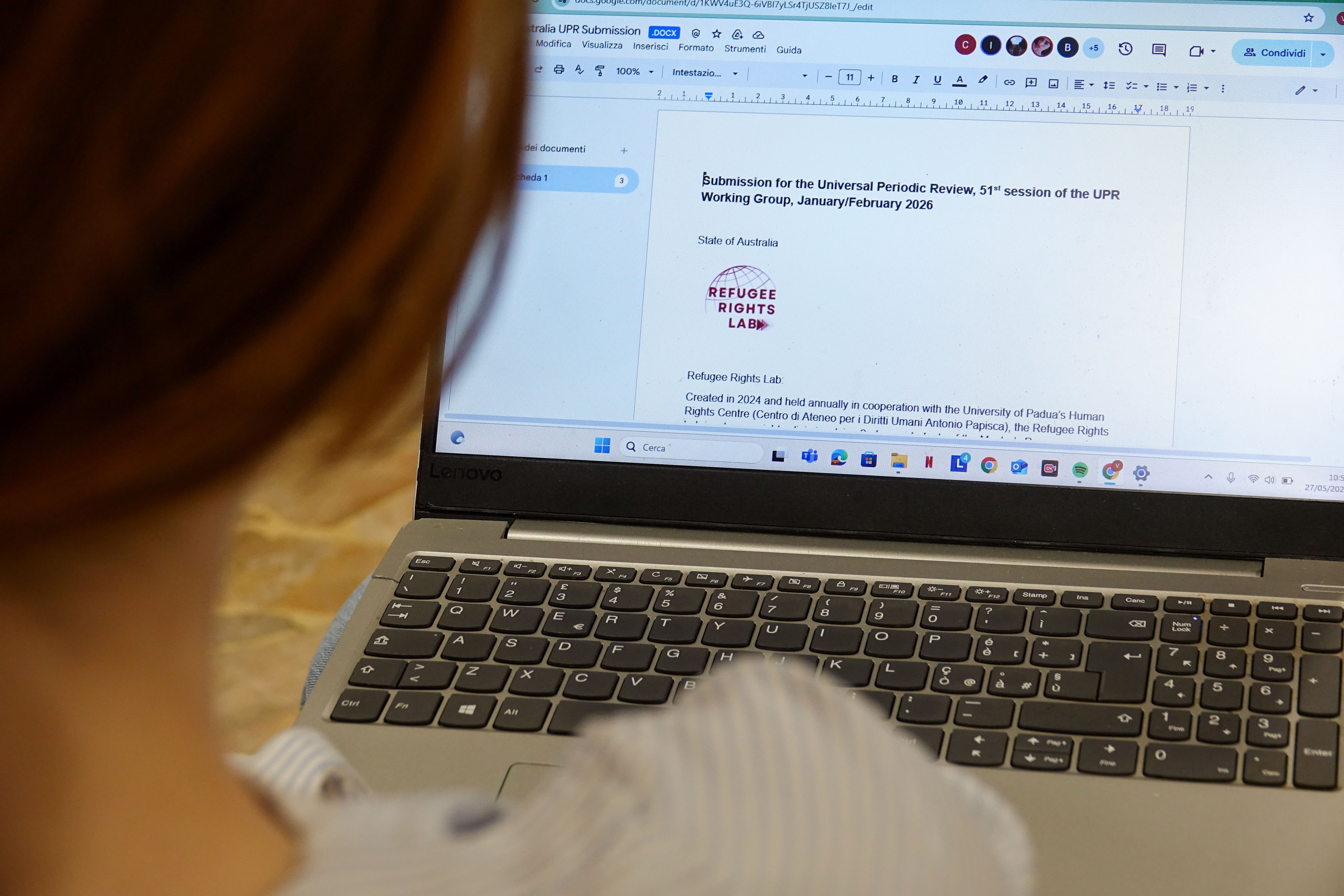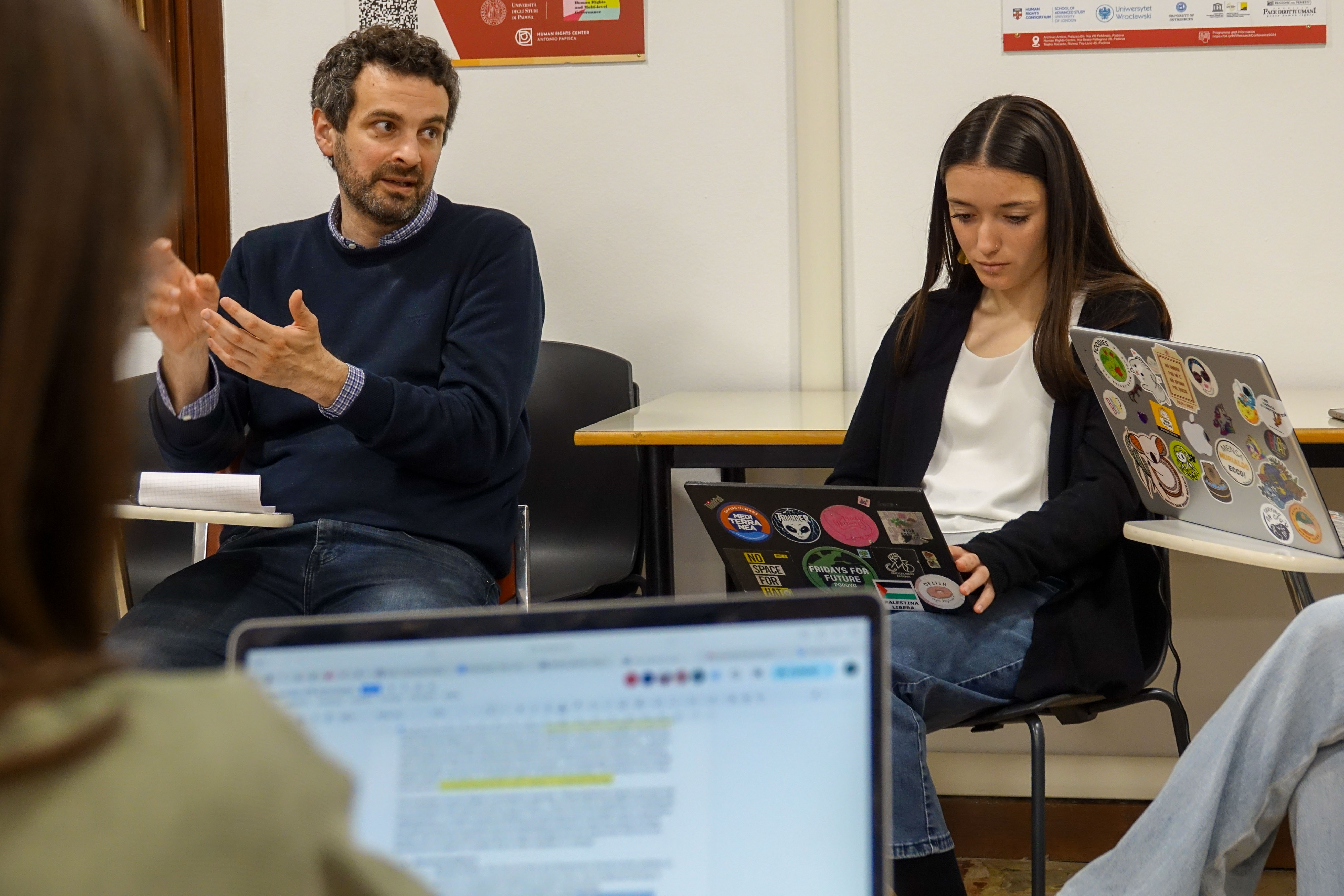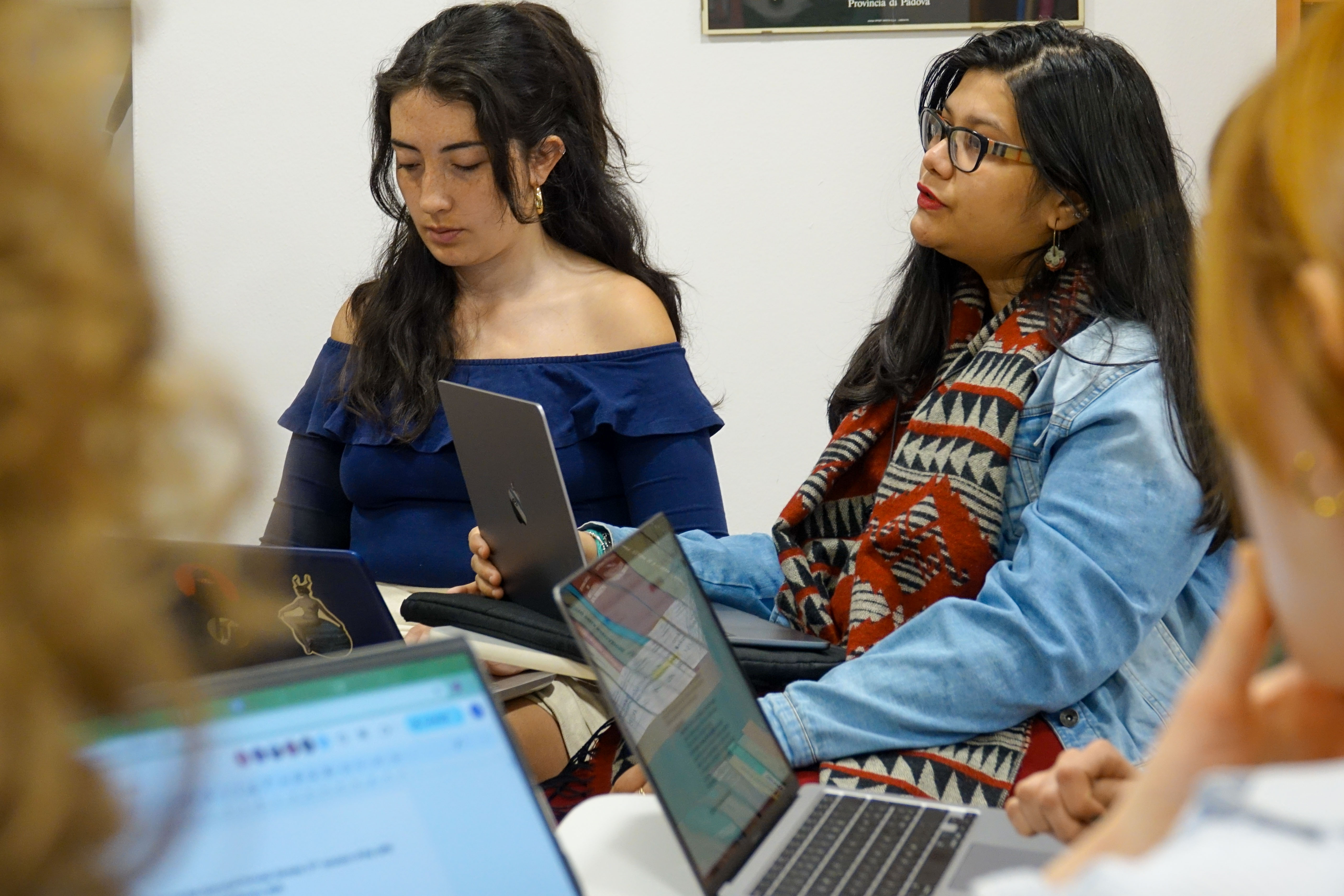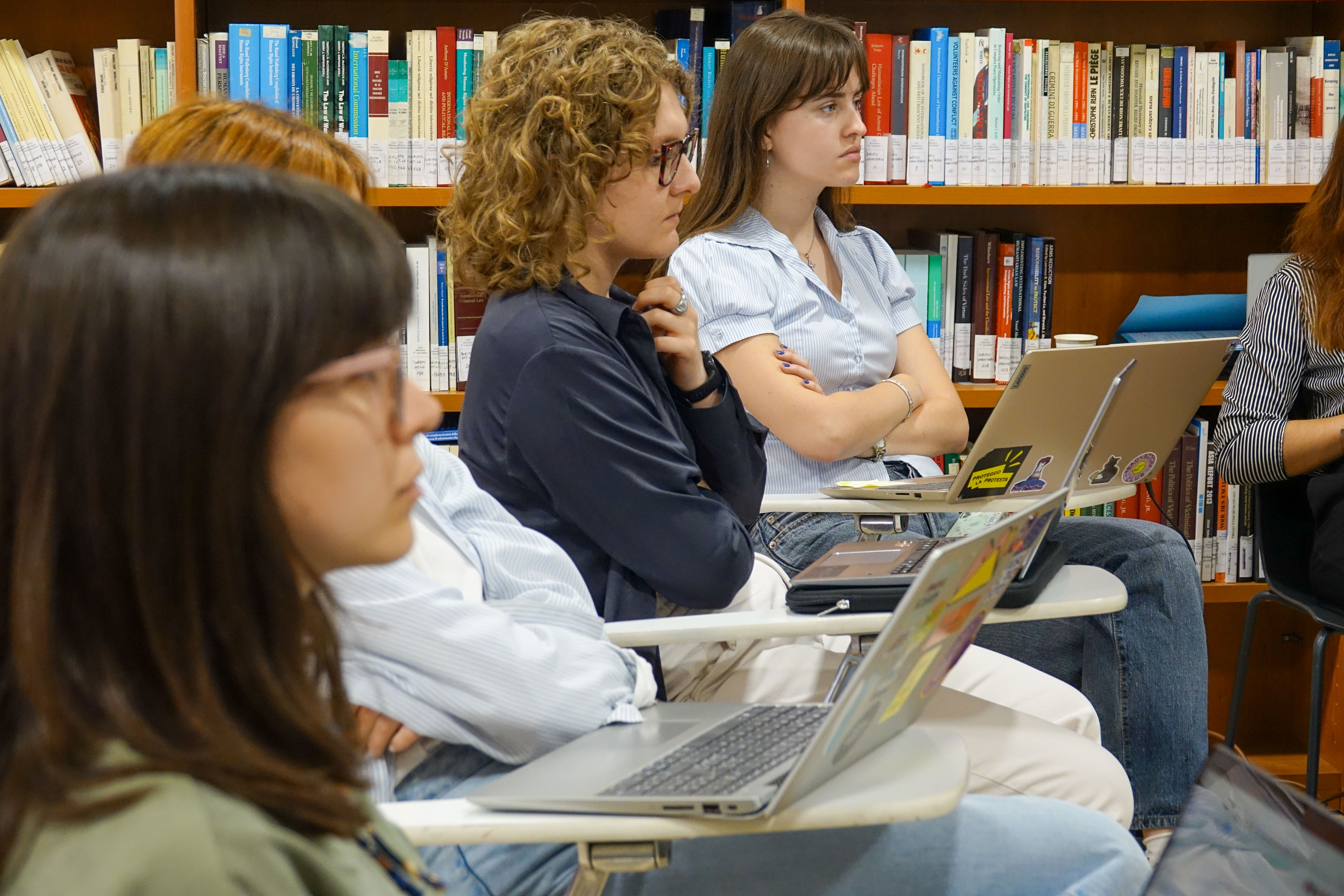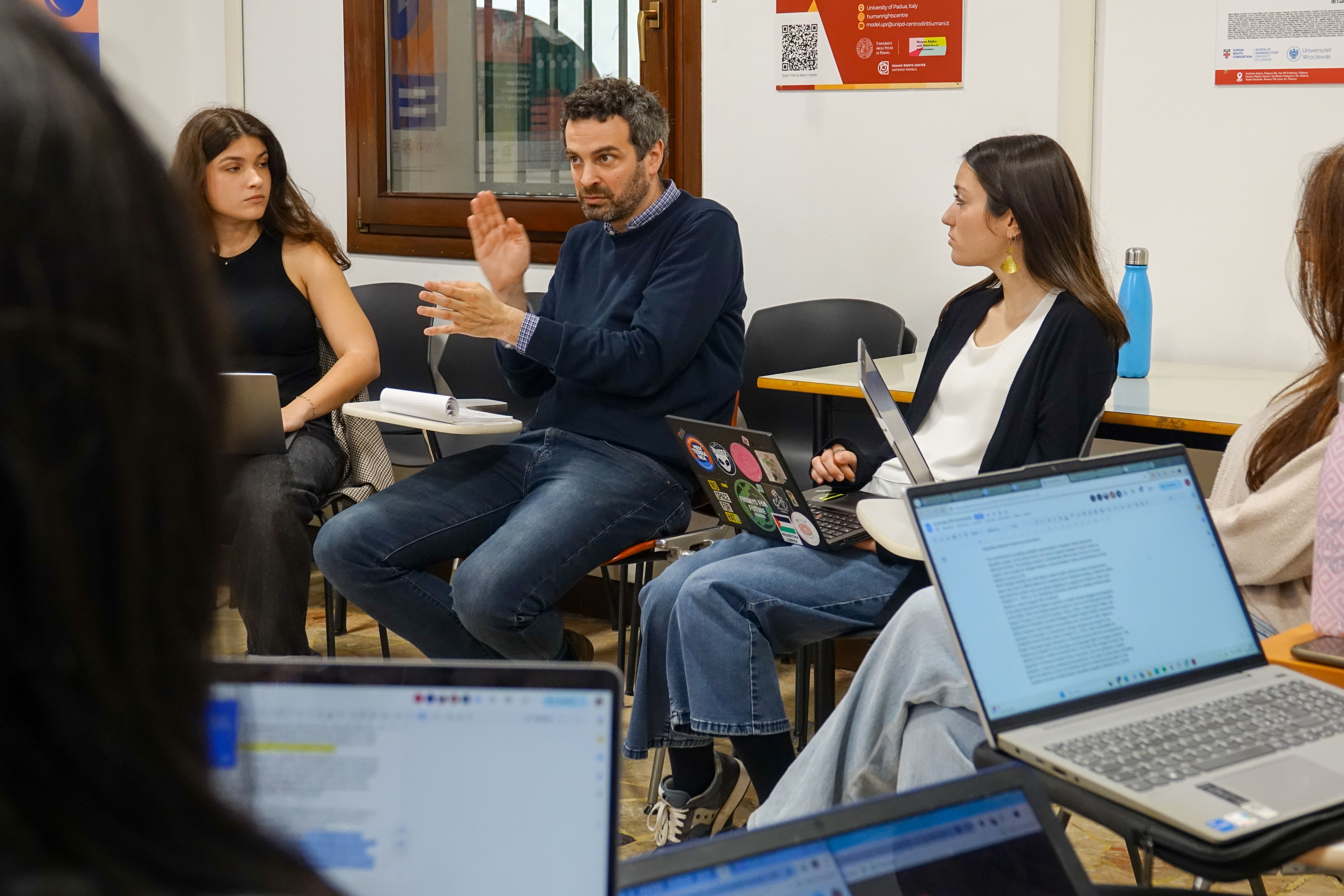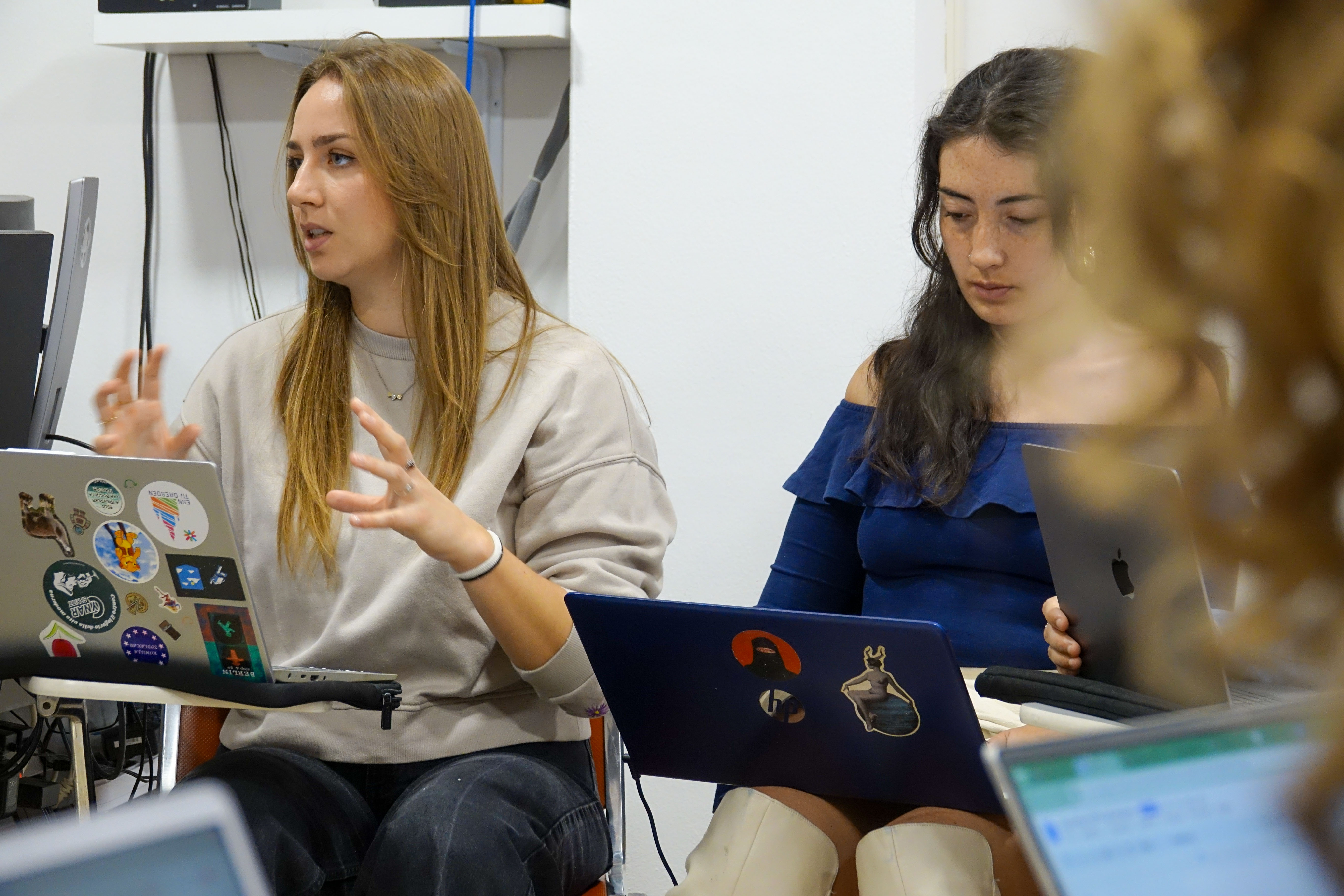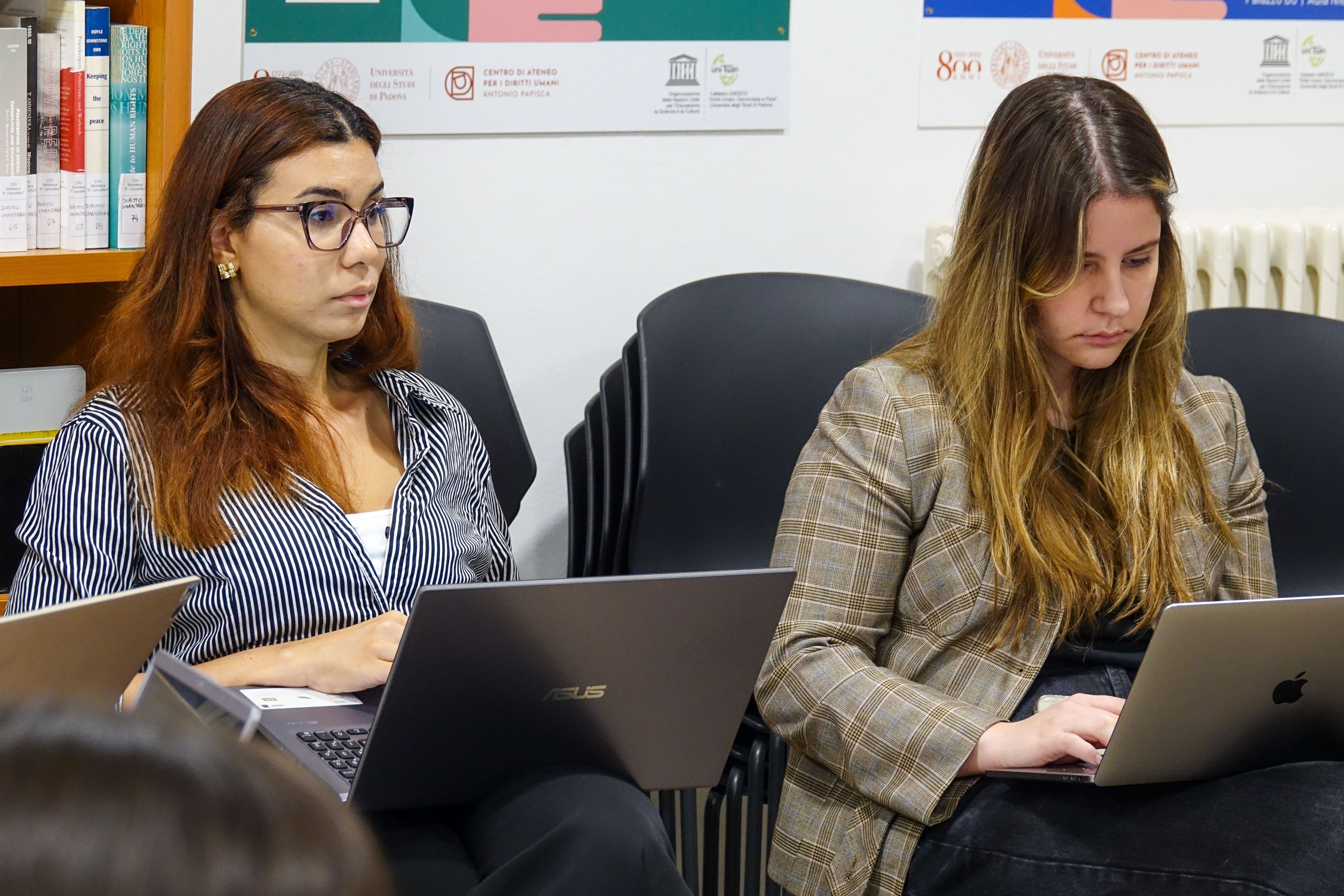Refugee Rights Lab
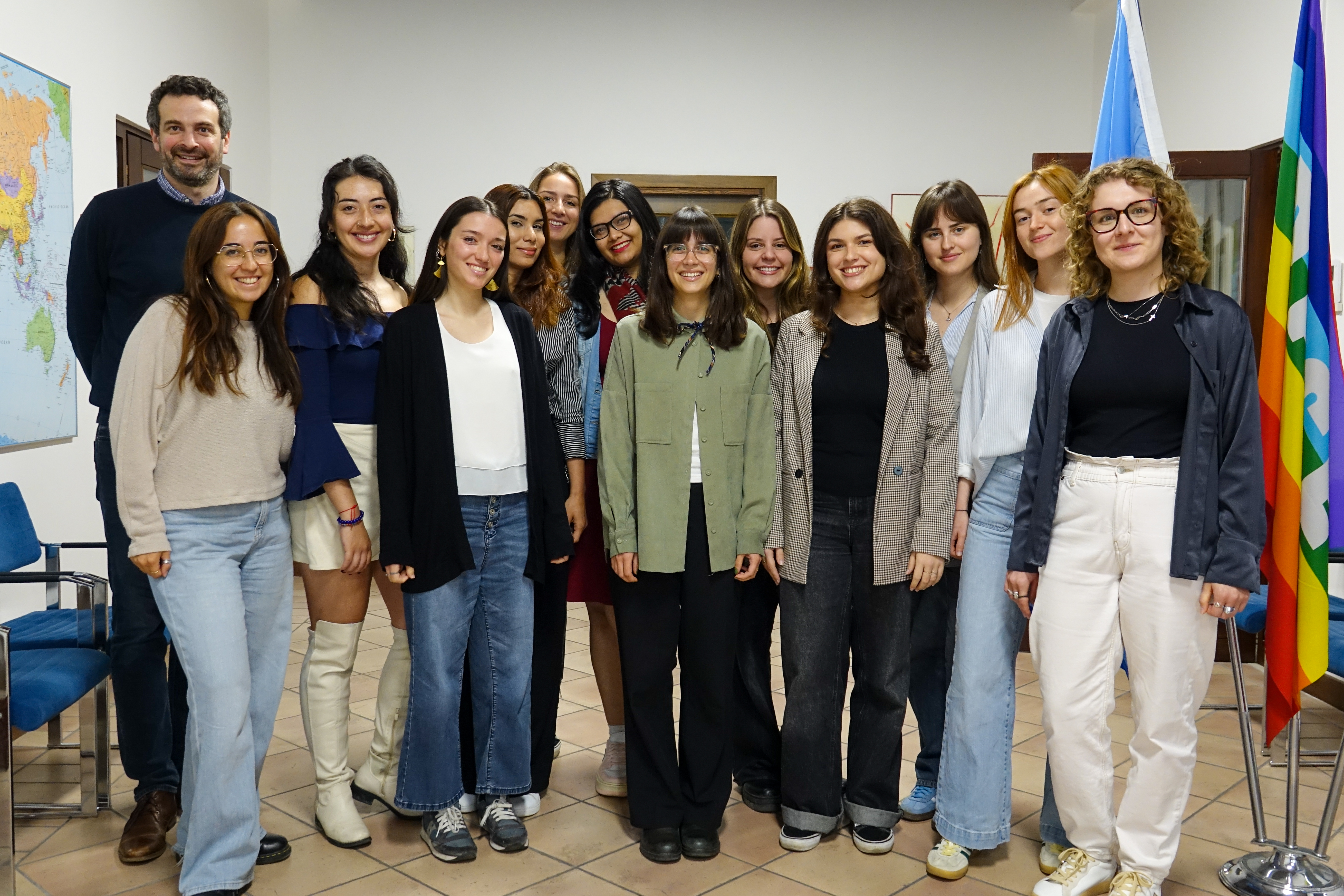
Refugee Rights Lab 2025: Second edition concludes at the University of Padova’s Human Rights Centre
On 27 May 2025, the second edition of the Refugee Rights Lab came to a close, following an intensive week of activities that began on 19 May. This year’s edition brought together twelve second-year students of the Master’s Programme in Human Rights and Multi-level Governance, each with diverse academic and cultural backgrounds and a shared commitment to refugee protection and international human rights.
Organized in collaboration with the University of Padova’s Human Rights Centre “Antonio Papisca,” this year the 2025 Lab focused on the right to education for asylum seekers, refugees, and other beneficiaries of international protection. Throughout the week, students worked in small groups to begin drafting three human rights submissions addressing this theme across different country contexts.
One will be submitted to the UN Committee on Economic, Social and Cultural Rights (CESCR) and will focus on Colombia, scheduled for review by the Committee in the fall of this year. The other two will be submitted to the Office of the High Commissioner for Human Rights (OHCHR) for the upcoming Universal Periodic Review (UPR) process in early 2026 and will address the situation in Lebanon and Australia. The Lab team worked on developing evidence-based recommendations aimed at improving educational access to education for displaced populations. As part of the follow-up, two of its members should be able to attend the CESCR session in Geneva, - opportunity to represent the Lab, promote the work carried out and engage directly with UN staff and experts, as well as others stakeholders.
The Lab sessions followed a collaborative and discussion-based format, allowing participants to critically reflect on legal standards, policy frameworks, and to conduct analysis drawing from UN documentation as well as other sources. Legal obligations attached to the right to education as well as global achievements and shortcomings with the UNHCR Education 2030 agenda, five years on from its adoption, were discussed in that context. Participants also had the opportunity to learn from field research carried out by a former student of the Master’s Programme in Jordan, looking at the inclusion of refugee children in public schools in Amman.
Created in 2024, and coordinated by Professor Antoine Meyer, a legal expert and practitioner in the field of refugee and human rights law, the Refugee Rights Lab provides a hands-on learning environment where students can strengthen their advocacy, research, and drafting skills.
In the picture, from left to right: Professor Antoine Meyer, Irene Coianiz, Denisse Valeria Mendoza Rivero, Bianca Russo, Lais Januario de Assis Cajazeira, Chiara Griotti, Sukanya Sengupta, Laura Vaiani, Rafaela Maria Barbara Paiva Francisco Sipressi Perugini, Marina Garcia Cunha, Sabaeta Zeneli, Valeria Ceban and Carlotta Codeluppi.


